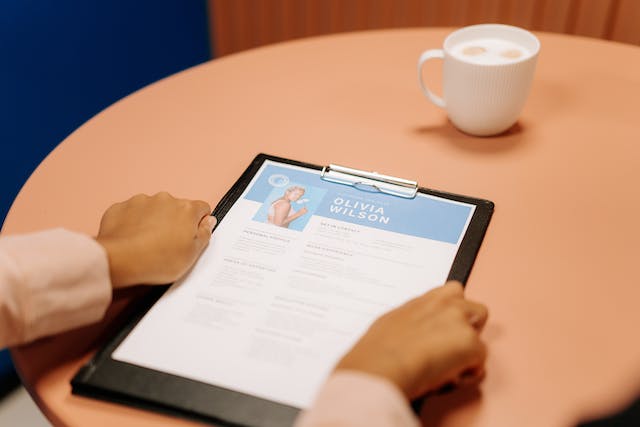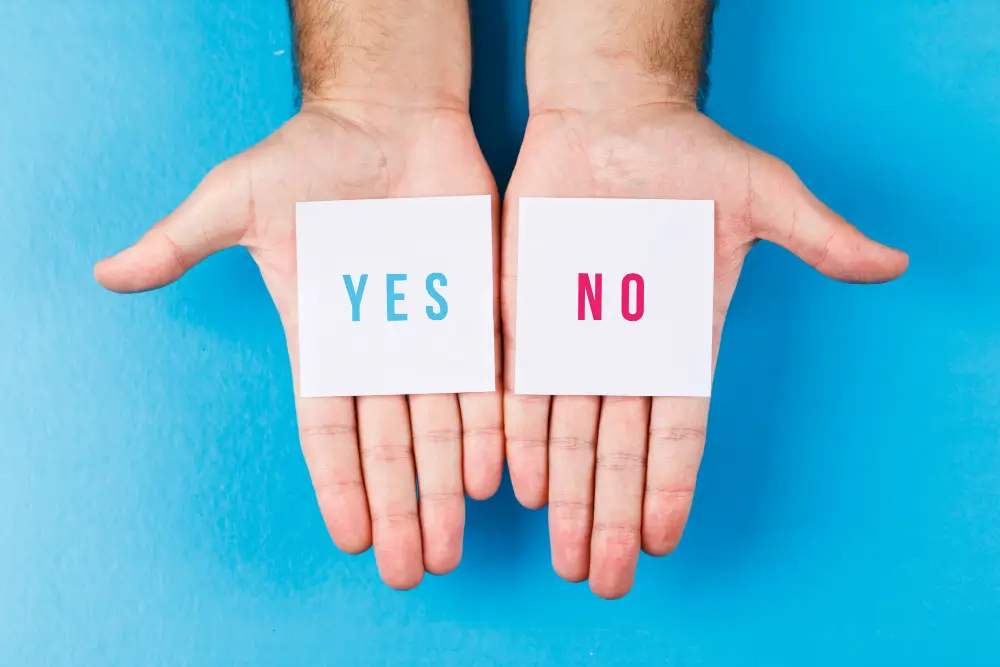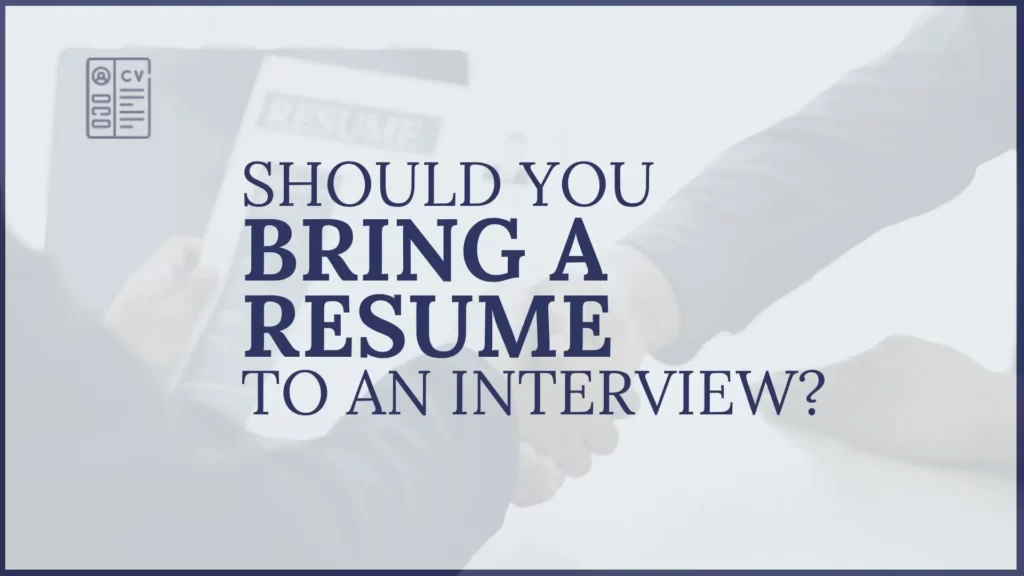Are you uncertain about whether or not to bring a resume to your next job interview? As a job seeker, it is crucial to understand the importance of presenting a polished, professional resume to potential employers. In this blog post, we will provide you with essential tips to ensure that you are prepared to make a strong impression during your next interview. By the end of this post, you will have a clear understanding of why bringing a resume is essential and how to create a perfect resume that will set you apart from other candidates.
Key Takeaways:
Always bring a resume to an interview
Even if the hiring manager already has a copy, having a physical copy to reference during the interview can demonstrate your preparedness and professionalism.
Tailor your resume to the job
Customize your resume to highlight specific skills and experiences that are relevant to the position you are applying for. This can help you stand out as a strong candidate.
Use your resume as a talking point
During the interview, use your resume as a tool to expand on your experiences and qualifications. Be ready to discuss any points on your resume in more detail.
Understanding the Role of a Resume
Some job seekers underestimate the importance of bringing a resume to an interview, assuming that the employer already has their information on file. However, your resume is a crucial tool that provides a comprehensive overview of your skills, qualifications, and professional experience. It helps the interviewer understand your background and assess whether you are the right fit for the company.

What Your Resume Tells Employers
When you bring a resume to an interview, you are giving employers a snapshot of your professional identity. Your resume tells them about your educational background, work experience, and relevant skills. It also highlights your career achievements, such as successful projects, awards, and certifications. Employers use this information to evaluate your potential contribution to the company and assess whether you have the qualifications they are seeking for the role.
Tailoring Your Resume for the Interview
It’s important to tailor your resume for the specific job you are applying for and the company you are interviewing with. By customizing your resume to highlight the most relevant skills and experiences, you demonstrate to the employer that you understand their needs and are prepared for the interview. This can significantly increase your chances of making a positive impression and standing out as a strong candidate for the position.
Preparing Your Resume
Obviously, one of the most important aspects of preparing for an interview is ensuring that your resume is up to standard. Your resume is a snapshot of your professional experience and qualifications, and it’s often the first impression a potential employer will have of you. Therefore, it’s crucial that you take the time to craft a strong, tailored resume that effectively showcases your skills and experience.

Crafting a Winning Resume
When crafting your resume, it’s essential to highlight your most relevant and impactful experiences. Use action verbs and quantifiable achievements to demonstrate your contributions in previous roles. Tailor your resume to the specific job you’re applying for, emphasizing the skills and experiences that are most relevant to the position. Use a clean, professional format and make sure to proofread for any spelling or grammatical errors. Your goal is to make it easy for the employer to see why you’re a strong candidate for the role.
Customizing Your Resume for the Job
One mistake many job seekers make is sending out the same resume to every job they apply for. However, each job is unique, and your resume should reflect that. Take the time to evaluate the job description and identify the key skills and qualifications the employer is looking for. Then, customize your resume to align with those qualifications, making it clear to the employer that you have the specific skills and experiences they’re seeking. By doing so, you’ll show that you’ve done your research and are genuinely interested in the position.
The Do’s and Don’t s of Bringing a Resume
Any job seeker knows the importance of bringing a resume to an interview. It’s a crucial tool that showcases your skills, experiences, and qualifications to potential employers. However, there are certain do’s and don’t s when it comes to bringing a resume to an interview that can make or break your chances of getting the job. Here are some essential tips to keep in mind.

Why You Should Always Bring Multiple Copies
When it comes to bringing your resume to an interview, it’s not enough to just have one copy. You should always bring multiple copies with you. This is important because you may be interviewed by multiple people, and each one may want to have a copy of your resume to refer to. Additionally, having extra copies shows that you are prepared and professional, which can leave a positive impression on your potential employer.
Common Mistakes to Avoid
One common mistake to avoid when bringing a resume to an interview is not tailoring it to the specific job you are applying for. Your resume should always be customized to highlight the skills and experiences that are most relevant to the position. Another mistake is bringing a worn or outdated resume. Always make sure to bring fresh, clean copies of your resume to the interview to present yourself in the best light possible. Additionally, make sure your resume is free of typos and grammatical errors, as these can leave a negative impression on potential employers. And if you are going with a perfect cover letter for the job then it is the plus point that can make you indivuduall from other candidates and increase your chances to land that job.
The Interview Stage
If you are sick and can’t able to appear on your interview then read this comprehensive blog for rescheduling the interview due to sickness. But If you’ve made it to the interview stage, congratulations! This means that the employer has already seen something in your resume that they like, and now they want to learn more about you. The interview is your chance to prove that you are the right fit for the job and to demonstrate your expertise and personality in person. It’s also an opportunity for you to learn more about the company and the role, so that you can make an informed decision if an offer is made.

The Role of the Resume in Interviews
Your resume still plays an important role in the interview process. While the interviewer may have already seen your resume, they may refer to it during the interview to ask specific questions about your experience, skills, or achievements. The resume serves as a guide for the interviewer to delve deeper into your qualifications and to better understand your background. Be prepared to speak to the details on your resume and provide examples that showcase your abilities.
Presenting Your Resume Effectively
When bringing your resume to the interview, it’s crucial to present it in a professional manner. Your resume should be printed on quality paper and neatly organized in a professional folder or portfolio. Consider bringing multiple copies of your resume in case there are multiple interviewers or if the interviewer requests a copy. Ensure that your resume is up to date and tailored to the specific job you are interviewing for. Highlight the most important and relevant details to the role, and double check for any errors or inconsistencies. You want your resume to leave a positive and lasting impression.
Beyond the Resume: Enhancing Your Interview Presentation
After you’ve submitted your resume and have been invited for an interview, it’s time to focus on how you can make the best possible impression. While your resume provides a comprehensive overview of your qualifications and experience, the interview gives you the opportunity to present yourself in a more dynamic and personal way. Here are some essential tips for enhancing your interview presentation beyond the resume.
Creating a Positive and Lasting Impression
When it comes to creating a positive impression during an interview, it’s not just about what you say, but also how you present yourself. Your body language, grooming, and attire all play a role in shaping the interviewer’s perception of you. Make sure to maintain good posture, maintain eye contact, and offer a firm handshake. Dress in a professional and polished manner, paying attention to grooming and personal hygiene. These details may seem small, but they contribute to the overall impression you make on your potential employer.
Other Essential Documents to Consider
In addition to your resume, there are other essential documents you should consider bringing to the interview. Depending on the nature of the job, you may want to bring a portfolio of your work, certification documents, or letters of recommendation. These supplementary materials can provide tangible evidence of your skills and achievements, demonstrating to the interviewer the depth of your experience and qualifications. Remember to organize these documents neatly and present them in a professional manner, as they can further enhance your credibility as a candidate.
Resume Etiquette During an Interview
Despite the prevalence of digital resumes, bringing a hard copy of your resume to an interview is still considered essential. It shows that you are prepared, organized, and taking the opportunity seriously. However, there are certain guidelines to follow when it comes to presenting your resume during an interview.

When to Offer Your Resume
When you arrive at the interview, greet your interviewer warmly and confidently. You should offer your resume immediately upon arrival, even if the interviewer doesn’t request it right away. This demonstrates your proactiveness and preparedness. However, if the interviewer asks for your resume before you have the chance to offer it, be sure to have it readily accessible, rather than fumbling through your bag or briefcase.
Handling Multiple Copies and Versions
It’s essential to bring multiple copies of your resume to the interview, especially if you know there will be multiple interviewers or panel interviews. Additionally, if you have different versions of your resume tailored to specific job positions, ensure that you have the correct version on hand as per the job you’re interviewing for. Remember to keep your resumes in a professional-looking folder or portfolio, to ensure they remain clean and organized when you present them.
To wrap up: Should You Bring a Resume to an Interview?
It is essential that you bring a resume to an interview, as it shows preparedness, professionalism, and allows you to effectively showcase your skills and experiences to potential employers. By following the essential tips for job seekers in this article, you can ensure that your resume is tailored to the specific job and company you are applying for, and that you are well-equipped to impress during the interview process. Remember, your resume is a critical tool in your job search, so be sure to bring it to every interview and keep it updated and relevant to your career goals.
Beyond the Resume
To stand out in a competitive job market, you need to go beyond the traditional resume. While your resume showcases your past experiences and qualifications, it’s essential to consider additional materials that can help you make a strong impression on potential employers. Here are some key factors to consider when presenting yourself beyond the resume.
Supplemental Documents to Consider
When preparing for an interview, it’s essential to have supplemental documents ready to showcase your skills and experiences. These can include a cover letter, letters of recommendation, and a list of professional references. A well-crafted cover letter allows you to highlight why you are the best fit for the position and express your enthusiasm for the opportunity. Letters of recommendation and a list of references provide further validation of your qualifications and character, which can be influential in the decision-making process.
Building a Professional Portfolio
Creating a professional portfolio can significantly enhance your job application. This can include samples of your work, such as writing samples, design projects, or multimedia creations. A professional portfolio allows you to demonstrate the quality and diversity of your work, giving potential employers a tangible sense of what you can bring to the table. Additionally, including your portfolio in your interview can provide concrete examples of your skills and accomplishments, making a strong case for why you are the ideal candidate for the position.
People also asks – Should You Bring a Resume to an Interview
Should I bring a resume to an interview?
Yes, it is essential to bring a copy of your resume to an interview. Even if the employer already has a copy, it shows that you are prepared and professional. It also gives you a chance to reference specific experiences and accomplishments during the interview.
What should be included on a resume for an interview?
Your resume should include your contact information, a summary of your skills and experience, a list of your previous employment positions, education, and any relevant certifications or awards. Be sure to tailor your resume to the specific job you are applying for.
How many copies of my resume should I bring to an interview?
It is wise to bring at least two copies of your resume to an interview. This allows for the possibility of multiple interviewers, as well as any unforeseen circumstances that may arise.
Should the resume be printed on a specific type of paper?
It is best to print your resume on high-quality, professional paper. A heavier bond paper in a neutral color such as white or ivory is ideal. This will give your resume a polished and professional look.
Is it appropriate to offer my resume to the interviewer if they don’t ask for it?
It is generally not necessary to offer your resume to the interviewer if they don’t ask for it. However, if you feel that your resume could add value to the conversation or if you want to highlight a particular accomplishment, it may be appropriate to offer it at the end of the interview as a courtesy.

Author Bio
Brian Bertrand
Brian Bertrand is an experienced resume writer with over five years of expertise in catapulting clients to their dream jobs. Through collaborations with renowned freelance platforms and esteemed online resume service brands, he has carved a niche for himself by delivering personalized, top-notch resumes that encapsulate the very essence of each client’s accomplishments, skills, and character. Diligent in his approach, Brian’s innovative flair and unwavering commitment to his craft make him a trusted partner in the pursuit of professional success. With an insistent curiosity for diverse industries and career trajectories, Brian strives to ensure that each resume he creates stands out from the competition. Whether you’re an aspiring graduate, a career switcher, or a seasoned pro, Brian possesses the expertise to craft a resume that truly reflects your unparalleled value and potential.

